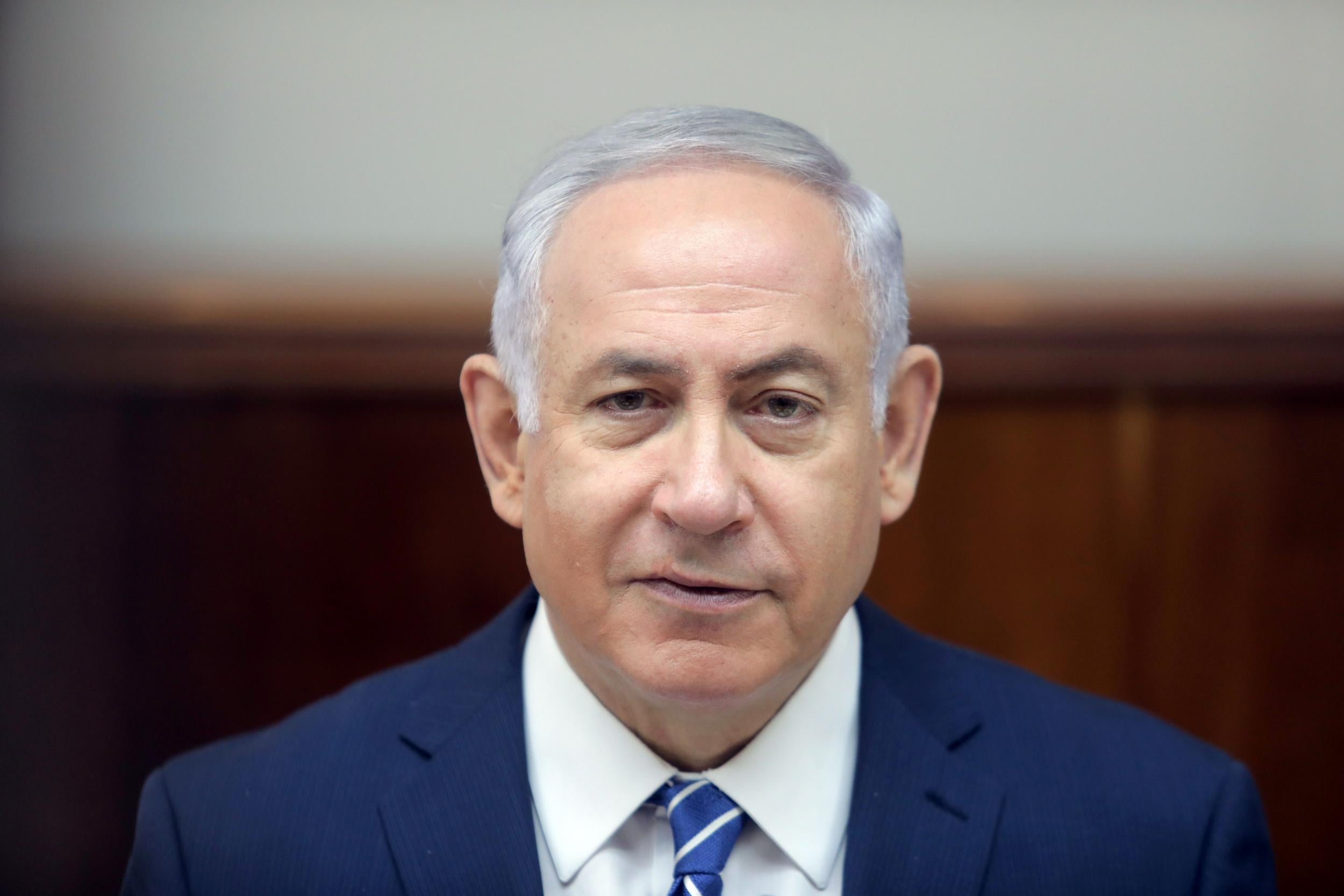Benjamin Netanyahu: Israeli settlements in the West Bank are ‘here to stay forever’
‘We will deepen our roots, build, strengthen and settle’, Israeli prime minister says in speech marking 50 years of Israeli occupation of Palestinian land

Your support helps us to tell the story
From reproductive rights to climate change to Big Tech, The Independent is on the ground when the story is developing. Whether it's investigating the financials of Elon Musk's pro-Trump PAC or producing our latest documentary, 'The A Word', which shines a light on the American women fighting for reproductive rights, we know how important it is to parse out the facts from the messaging.
At such a critical moment in US history, we need reporters on the ground. Your donation allows us to keep sending journalists to speak to both sides of the story.
The Independent is trusted by Americans across the entire political spectrum. And unlike many other quality news outlets, we choose not to lock Americans out of our reporting and analysis with paywalls. We believe quality journalism should be available to everyone, paid for by those who can afford it.
Your support makes all the difference.Israeli Prime Minister Benjamin Netanyahu has vowed that his country will never give up its settlements on Palestinian land, saying in a speech to commemorate the 50th anniversary of the Six Day War that “we are here to stay forever”.
“There will be no more uprooting of settlements in the land of Israel. It has been proven that it does not help peace,” he said. “We've uprooted settlements. What did we get? We received missiles. It will not happen anymore, he said in a speech on Monday in Barkan, a settlement near Tel Aviv.
“We are here to stay, forever.”
Israel annexed East Jerusalem and parts of the West Bank in the 1967 war, a move which has never been recognised by the international community.
The accelerating pace of Israeli settlement building over the 1967 Green Line is one of the major sticking points in any workable Israeli-Palestinian peace deal.
“We are guarding Samaria [the Israeli name for the West Bank] against those who want to uproot us. We will deepen our roots, build, strengthen and settle,” the premier added.
Mr Netanyahu has made many similar statements on other occasions. The Barkan outing marked his third visit to the West Bank so far this year.
It is believed around 500,000 Israelis now live in settlements.
His government recently announced more than 11,000 new settler homes in the West Bank, as well as the retroactive legalisation of 4,000 “outpost”Jewish homes built on private Palestinian land - bold moves believed to have been encouraged by US President Donald Trump's unexpected election victory.
Mr Trump is widely viewed in Israel, and the wider Middle East, as far more sympathetic to Israeli interests, including the contentious issue of settlement building, than his predecessor Barack Obama.
During his campaign, Mr Trump had said the Israeli government should “keep going” with the construction of new settlements. He walked back some of that language during a February visit to Washington by Mr Netanyahu, when he told the visiting prime minister in front of reporters that “I would like to see you hold back on settlements for a little bit.”
The new stance, together with White House equivocation over whether the US embassy will move from Tel Aviv to Jerusalem as promised, has caught some Israeli hard-liners off guard.
The Trump administration has also suggested several times that the president is open to the idea of a one-state, rather than two-state, solution to the intractable conflict.
Such a move would be a marked change from US policy since Bill Clinton’s tenure which, alongside the UN, EU, Arab League and others, has been to promote the idea of a peace deal involving a Palestinian state.
Palestinian Authority (PA) representatives have been keen to stress they want US commitment to a two-state deal which would recognise an independent Palestine.
Presidential advisor and Mr Trump’s son-in-law Jared Kushner has just completed a multi-stop tour of the Middle East aimed at restarting peace talks, which last broke down in 2014.
Join our commenting forum
Join thought-provoking conversations, follow other Independent readers and see their replies
Comments